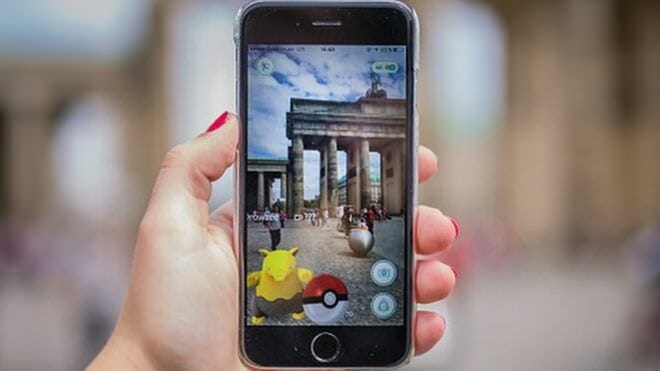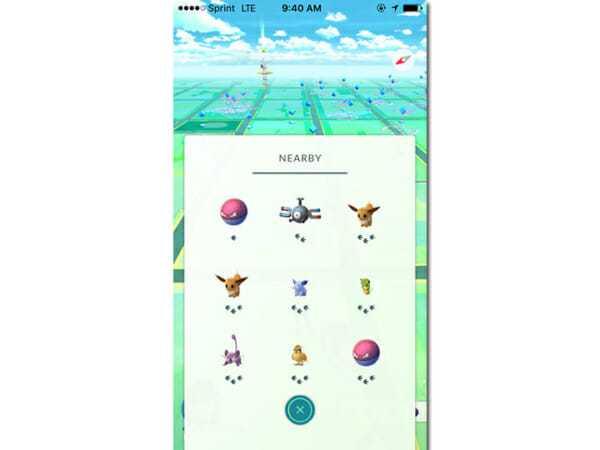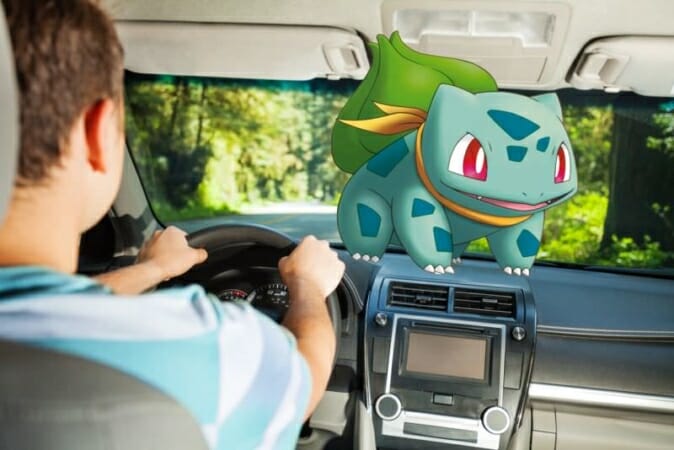Could Pokemon Go Affect the Travel Industry?

It's a nerdy post this week, everyone - brace yourselves. If you haven't heard about the Pokemon Go craze sweeping around the world, firstly, where have you been? Secondly, you've got a lot of catching up to do. Pokemon Go is the latest game in a series that's been going strong for almost two decades, and today we're going to take a look at how it's set to influence the travel industry. This might sound like two things that should never be considered as having a relationship, but trust us, it's happening.
How can a game affect the travel industry?
To answer this question we're going to need to dig deep into both travel and Pokemon. So if you didn't have your finger on the pulse of gaming in the 90s and 00s, this is going to be quite an education. First, allow us to explain what exactly Pokemon is. Pokemon is essentially a game based on adventure and collection. Your character travels through a fictional world meeting people, exploring new places, and, most importantly, capturing Pokemon. Pokemon are essentially animals, but are probably more similar to insects. The only difference is that once captured, you can train them, improve them, and eventually battle them against your pals and enemies. But this isn't like collecting stamps - Pokemon become (at least in the movies) your friends and companions.
So that's Pokemon in a nutshell. You roam around, collect the best, and build a team you can battle with. But here's the difference with Pokemon Go, the latest iteration. Traditionally, each edition of Pokemon has been set in a different fictional world. But now, years later, its makers have developed a way to integrate the game with the real world. Instead of wandering around fictional cities and engaging with fictional people, the entire game has been superimposed through GPS onto the towns and cities we call home.

In essence, it's a dream come true for many millennials, who played the addictive game back in their childhood and have willed it into reality ever since. Since its launch last week, Pokemon Go has been downloaded and played by hundreds of thousands around the world, connecting old fans back to the game they loved and inspiring plenty of new ones with its clever augmented reality.
So you now will be wondering where travel comes into all of this? How does a game played through a smartphone app get people moving? Well, the clever part of Pokemon Go is that users have to roam to play the game. You can't sit on the sofa and succeed, because to encounter Pokemon and battle other trainers you have to go out into the real world and find them. For that reason alone the game has been hailed as a possible solution to America's child obesity problem! In effect, it has become a mass social experiment. Are people willing to sacrifice one of the central facets of video gaming, armchair comfort, if it means real engagement with other people and re-connecting with the outside world and a long lost gaming classic? The answer, overwhelmingly, has been yes...
So seriously, what does Pokemon Go have to do with the Travel Industry?
The travel industry is all about getting people from one place to another. Similarly, Pokemon Go is all about exactly the same thing. The only difference is the end goal. People taking a vacation typically do so because they want to relax and unwind. People move from place to place while playing Pokemon because of the advantage that travel offers within the game. Certain landmarks have rarer Pokemon, gyms you can battle at, and items you can collect.
Understandably, the makers of Pokemon Go have set the best places to go and play to be in urban centres. Not only is this where most of the people are, allowing for a more social feel to the game, but this is also where the best mobile internet access is - something pretty vital if you want to play on the go.
Now, combine this fact with the huge - and we really mean HUGE - global following that this game is on the way to achieving. You've got a recipe for increased footfall in urban centres and, specifically, in the classic tourist hubs. New York's Central Park has been overrun with Pokemon trainers, as has the centre of London, university campuses in Florida, and other landmarks all around the world.
The game has existed for a week. And already it has twice as many users as dating app Tinder, and is on track to have more users than Twitter in a matter of days, according to SimilarWeb.
As the game and the technology it relies upon evolve, this is only going to get more out of hand. Imagine, for example, the world's biggest mountains becoming home to rare, in-demand Pokemon. Don't think gamers will be willing to take a trip up that mountain to catch one? You're wrong.

Okay, it is unlikely that people will travel huge distances just to add to their Pokémon collection, but, to be honest, stranger things have happened. If Nintendo play this right, they could create a global rate race, with gamers exploring new, inaccessible locations. That, after all, is totally within the spirit of the Pokemon franchise. It always has been.
More interestingly is the augmented reality technology that the game has applied so well. We've written in the past about how this kind of technology could shape the travel industry in the years to come. Not in doubt is Pokemon Go's ability to affect real world behaviour through the use of AR.
At Travelshift, we love nothing better than a daring entrepreneur in the travel industry. We understand that those who are quickest to adapt to new trends are the ones who will reap the rewards. For that reason, we've loved hearing stories about clever folks in America offering to charge Pokemon Go players to be driven around, in something akin to a “Pokemon Safari” - Brilliant!

What's guaranteed is that this is just the beginning for Nintendo. The game is going to evolve, and if you want to be ahead of the rest, it could even be a niche worth targeting for travel startups. It might not be long before 'Pokemon tourism' becomes a genuine thing. After all, people flock to parts of New Zealand to see landscapes used in the filming of Lord of the Rings. It's a matter of time before gamers are travelling to play, catch, and compete around the world too.
The Travelshift View
Look, we're not saying that one game is going to turn the travel industry on its head. What we're saying is that it's a great example of how quickly trends can move, how daring entrepreneurs have to be in a dynamic marketplace, and how excited we are about the future of augmented reality. Having said that, we'd be the first to sign up for a real-life Pokemon adventure, so we'll let you know if that comes up.